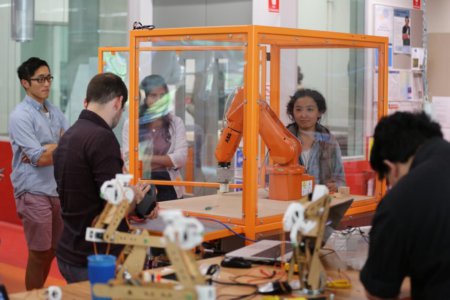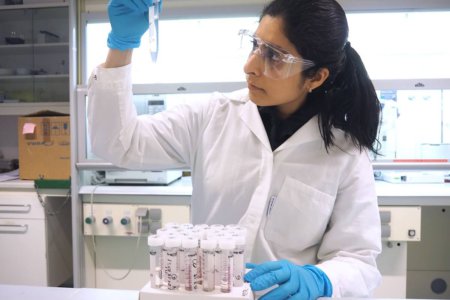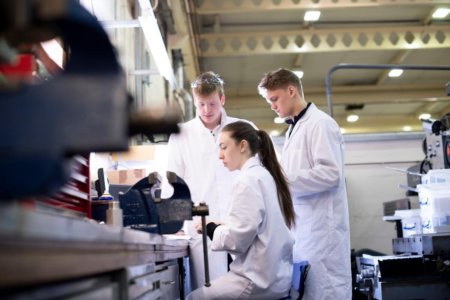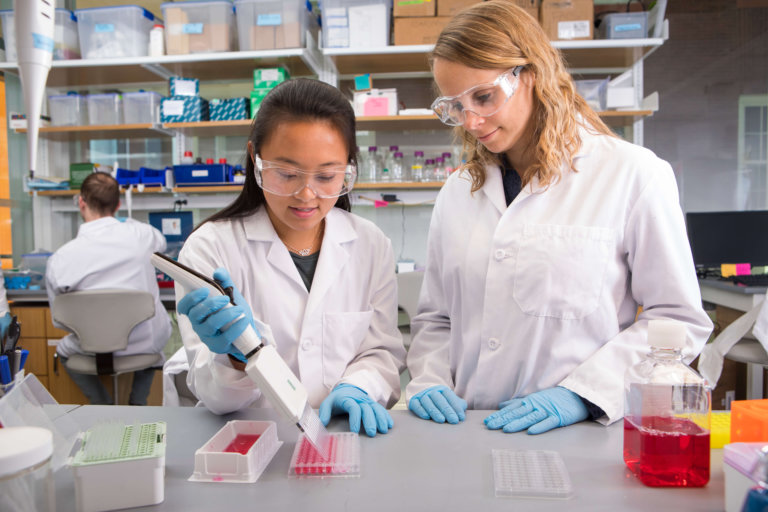
Engineering is a broad field that offers exciting career opportunities where you’ll get to be creative, solve problems and explore how things work every day. Engineers are involved in all facets of technology, including electronics, medicine, transportation, energy, new materials — anything you can imagine.
Most importantly, engineers address real-world problems. They fix things that are broken, improve those that work and come up with new inventions. Engineers help move the world toward a brighter, more sustainable future by solving problems with pollution, finding ways to harness new energy sources, producing new medicines, and building new structures.
Engineering is the most common undergraduate degree among Fortune 500 CEOs, with 20% claiming an engineering degree. These include Tim Cook (Apple), Satya Nadella (Microsoft) and Mary Barra (General Motors). Below are some of the highly esteemed engineering schools in the US that provide exactly what the future ordered:
Tufts University: School of Engineering
As a graduate student of Tufts School of Engineering, you’ll be part of something bigger than a prestigious institution of education and research. A personalised path of study — just a few miles from the high-tech hubs of Boston and Cambridge — plus mentorship from top industry figures, collaborative multidisciplinary research, and comprehensive professional development ensure this.

Located just a few miles from the high-tech hubs of Boston and Cambridge, Tufts School of Engineering is an incubator for the leaders of the future, a spark for innovations that can elevate society, a positive force for social change and an engine for good. Source: Tufts School of Engineering
Interdisciplinary learning is crucial to understanding how engineering solutions relate to the greater world. At Tufts, you’ll have the opportunity to collaborate with faculty, classmates, and researchers across all disciplines as a student and researcher.
Master’s programmes in Bioengineering, Computer Engineering, Cybersecurity and Public Policy, Data Science, Human-Robot Interaction, as well as Materials Science and Engineering — to name a few — are offered by several departments and maximise interdisciplinary connections.
“As an engineering school in a student-centred research university, our strong research portfolio differentiates us from the traditional liberal arts colleges, while our liberal-arts-based engineering education makes us unique among major research universities in the country,” says Dean Jianmin Qu. “This unique value proposition is well-suited to students who want to be exposed to and engaged in a rich research environment without losing the feel of a small liberal arts college.”
Here, you’re not just another number. Classes are small, which allows personalised attention and more interactions with talented classmates. To learn more about the quality, depth, and breadth of Tufts School of Engineering programmes, visit the Tufts Graduate Admissions website, learn more about master’s programs, follow the school on Facebook, Instagram, and Twitter, take a virtual tour or get in touch.
UC Berkeley: Berkeley Engineering
Ranked among the top three engineering schools in the world, offering a dynamic, interdisciplinary, hands-on education, UC Berkeley is the place to be. “Engineering drives innovation that shapes our future. At Berkeley, we work together to ensure that it will be bright for all,” says DeanTsu-Jae King Liu.

At Berkeley Engineering, students leave as global graduates. Source: UC Berkeley
Programmes here are designed with insights from the university’s industry partners to address the needs of engineers. From programmes in bioengineering to nuclear technologies, Berkeley Engineering offers innovative, impactful ways to change the world.
All of this happens at the departments of: Bioengineering; Civil & Environmental Engineering; Electrical Engineering & Computer Sciences; Engineering Science; Industrial Engineering & Operations Research; Materials Science & Engineering; Mechanical Engineering; and Nuclear Engineering
Here, students benefit from state-of-the-art research labs and classrooms, study centres and libraries. Berkeley Engineering is also home to three centres for innovation, design, and entrepreneurship, as well as three multidisciplinary degree programmes and a startup accelerator.
Students leave as global graduates — they benefit from study abroad opportunities and international collaborations to being surrounded by a diverse, multinational community within and beyond. The seven educational exchange programmes offered are within GLOBE: the Dado & Maria Banatao Center for Global Learning and Outreach from Berkeley Engineering.
University of Texas: Cockrell School of Engineering
Situated in the heart of Austin — named “The Best Place to Live in the US” by US News and World Report — the University of Texas’s Cockrell School of Engineering is an engine for the city’s evolution as a tech powerhouse and embodies its innovative spark. It is the top-ranked engineering school with the number one programme in Texas and a global leader in technology advancement and engineering education.
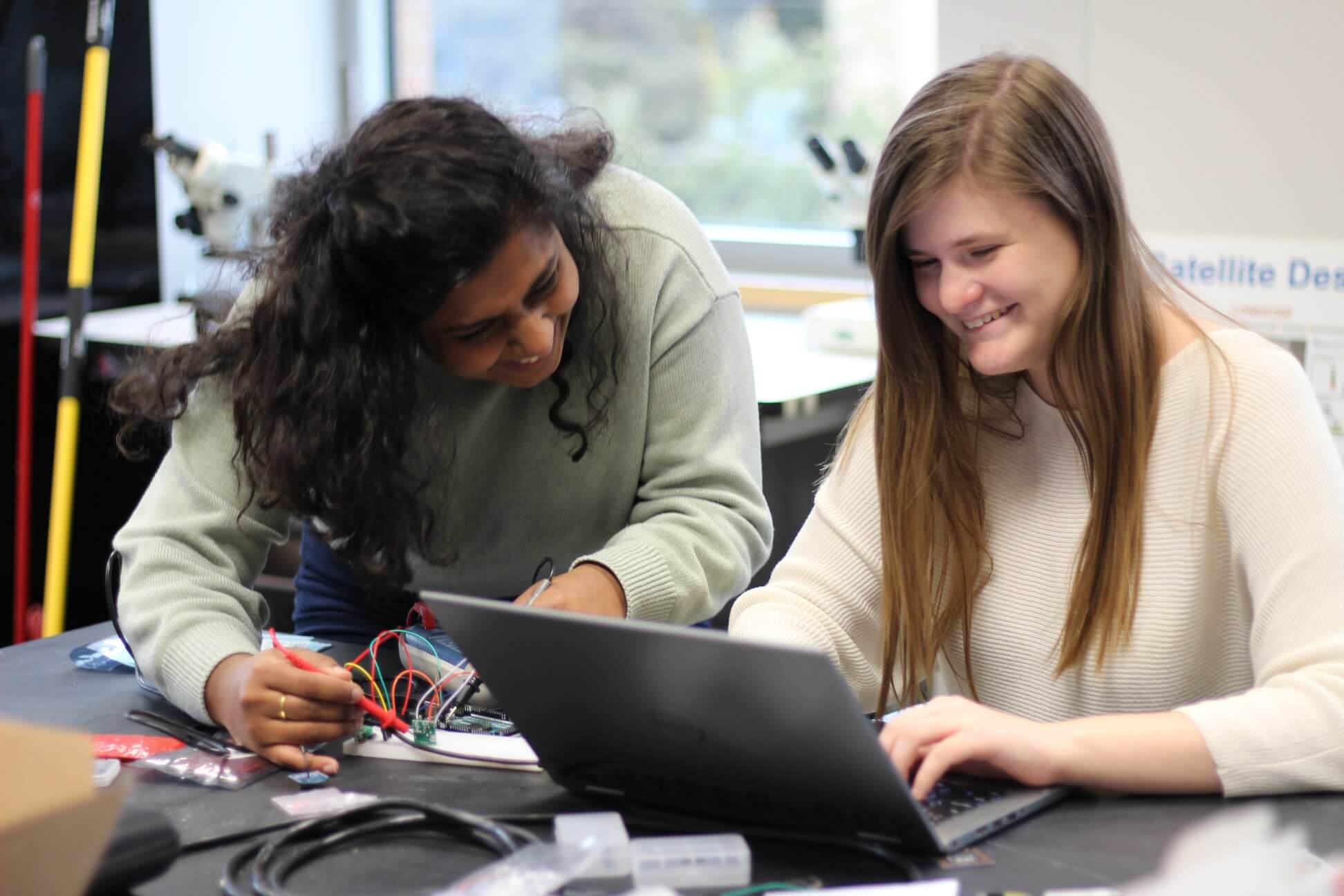
At the Cockrell School of Engineering, students go beyond “learning by doing”. Source: University of Texas
With 11 undergraduate programmes, 13 graduate programmes, and over 20 research centres, you will find an academic experience rich with versatility, opportunity and study. Here, students go beyond “learning by doing”.
You will create your own path through a multidisciplinary and hands-on approach. All of this happens at the departments of: Aerospace Engineering and Engineering Mechanics; Biomedical Engineering; Chemical Engineering; Civil, Architectural and Environmental Engineering; Electrical and Computer Engineering; Mechanical Engineering; and Petroleum and Geosystems Engineering
Little surprise then that Cockrell graduates leave and become industry leaders. How is this achieved? Through the school’s collaboration with major companies such as Dell, National Instruments, Apple, IBM, Samsung, Google and many others, where they are often hired.
University of Wisconsin–Madison: College of Engineering
At the University of Wisconsin–Madison’s College of Engineering. students grow as thinkers, doers, professionals and leaders. Be it in state-of-the art classrooms or laboratories, through internships and co-operative work experiences, student organisations, volunteer work, creative projects, students learn by doing — facilitated by the TEAM Lab or makerspace.
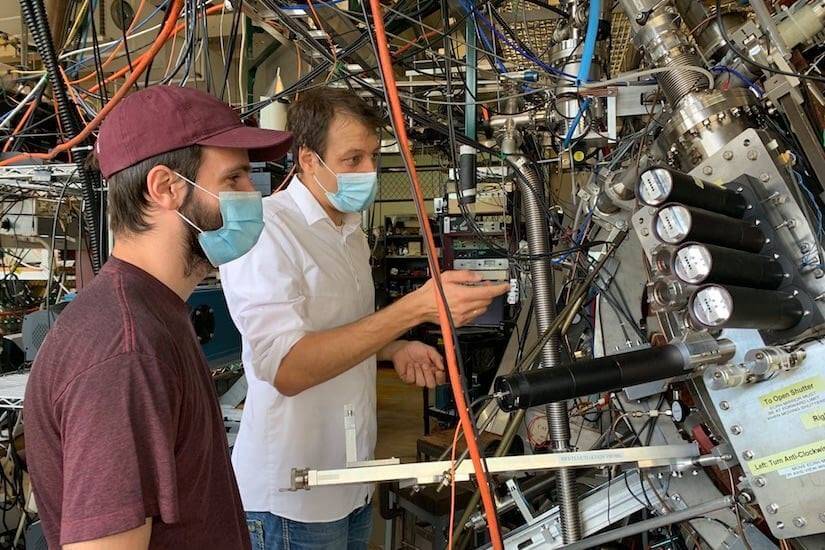
Source: University of Wisconsin–Madison: College of Engineering
Here, you’ll learn from top-flight faculty who are at the forefront of creating new knowledge in their fields and join any of more than 50 registered engineering student organisations. You can choose from 12 undergraduate majors, postgraduates programmes from nine departments and 27 online and accelerated programmes.
The interdisciplinary on-campus degree programmes offer graduate-level degrees in Design and Innovation; Environmental Chemistry and Technology; Freshwater and Marine Sciences; and Manufacturing Systems Engineering.
Being a student here means you’ll benefit from the college’s international study, field research, internships, laboratory experience, entrepreneurial opportunities and more. That’s not all. You’ll also benefit from the college’s active knowledge- and technology-transfer partnerships with government and industry.
*Some of the institutions featured in this article are commercial partners of Study International








